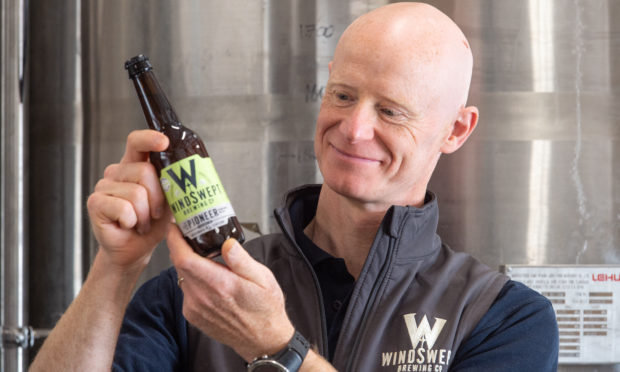A north brewer has launched a new beer as part of a project to investigate ways to create a smaller supply chain to support farmers.
Lossiemouth-based Windswept received a £53,000 grant from Moray Leader, which allocates EU and Scottish Government funding, after concerns were raised by the industry in Belgium about a lack of barley grown there.
The Scottish brewers were approached to take part in the project to determine what the challenges were in sourcing ingredients entirely from the nearby area to reduce carbon emissions and support local economies.
Now the firm has launched the end result, Pioneer, hoping that it will help shape the way brewers do business in the future.
Managing director Nigel Tiddy explained the project had highlighted how much barley producers have their profit margins squeezed.
He said: “One of the biggest discoveries for us was that for the farms the production, while being clearly at the whim of the weather, was also dependent on the global markets.
“As far as I could make out, the grain passes from the farm through two other sets of merchants, who don’t have any input to the final product, before reaching the maltster.
“Clearly these merchants will add their own margin to smooth the global market but it puts more pressure on the farmer to make ends meet.
“None of the farms we spoke to said they could grow barley without receiving government subsidies, which is ridiculous – it’s got to be sustainable.”
Windswept sourced barley for the project from Pitgaveny Estate near Elgin with the unwanted by-product from the beer being returned to the farm to feed cattle.
Maltings in Fife had to be used by the brewery due to no local sites being willing to take the three-tonne order with the minimum quantity quoted being 30 tonnes.
Mr Tiddy added: “We’ve launched the beer now but I don’t see it being the end of the project.
“We want to test whether people are interested in this kind of product. OK, it might cost a little bit more, but we want to see whether people are willing to buy it to support local economies.”
